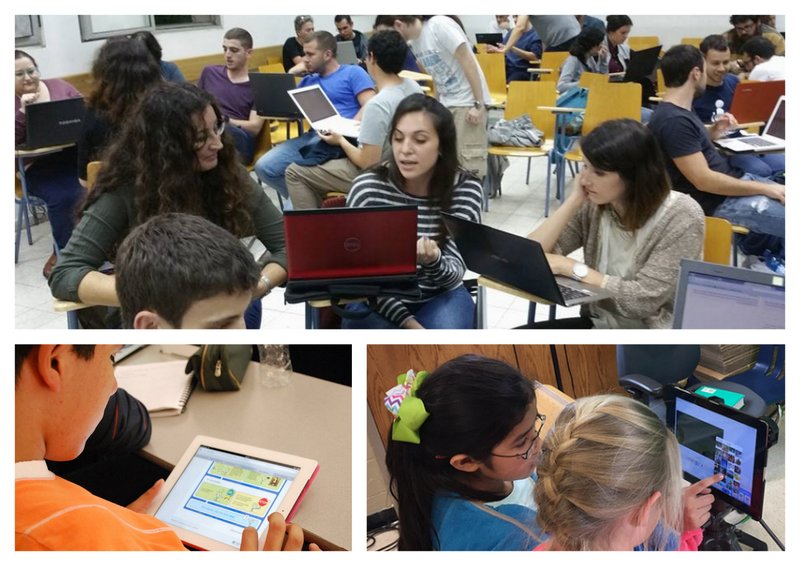Education coming out of Covid will put 25% to 100% of their content online, whether or not students come in for classes or workshops, the go to place will be digital and online. It can therefore be used as flipped or blended learning and will replace textbooks. In some instances colleges will go down the Open University model and close their estate and put everything online.
The role of marketing to sell digital to students and staff, or at least the skills of advertising, marketing and PR to get and then hold the attention of users is becoming all the more important. This is not just a case of getting the message out on digital platforms, but getting our wishes in front of students the traditional way too: in posters, displays and with electronic signage - but in a coordinated rather than a fragmented manner.
Teachers will have to become facilitators and moderators of content created by others. For example, taking Geography in the UK. How many teachers does it take to get 240,000 students through their GCSE in Geography? And how many of these also support the 36,000 students at A'Level? In the physical world I'm guessing 1,300 or so?
Online Barbara Oakley created 'Learning How To Learn' module on Coursera. 2,649,556 have enrolled on the course. A handful of people created the content, with Barb as presenter, writer and lead producer, a resident expert to offer further weight to the science, some greenscreen presenting and some simple graphics and animations. There has been a 'moderator' role - I have done this on a volunteer basis having taken the course but it is being down played and even discontinued by Coursera. These are designed to be self-paced courses. It's simple and it does the job. Why look elsewhere to 'learn how to learn' ? Who is doing this for other subjects? Well, there the Khan Academy for Math. What about History, or Biology?
Ok, we cannot have 75% of students dropping out in the first week! This doesn't mean we can't use the very best online content out there, it simply means that the role of teachers should be collectively to make the experience even more engaging without simply recourse to holding the interest of a captive audience in a classroom.
And a module on Coursera is not two years of education delivered over three terms a year. It will take time an investment to create the content. Are the likes of City & Guild Kineo, and Pearson not doing this already? And what about universities that have committed to 100% online, such as the University of Coventry in the UK and Duke University in the States - and not forgetting the Open University (as everyone does) who have been online since 2001.
If teachers are creating their own content from scratch, beginning when they set out as trainees, are they not reinventing the wheel every time? Have their predecessers not produced materials already? Lesson plans to follow? Top notch resources? If not, why not? I see the value and pride of ownership of this work, of reliance on it to deliver in the class. Can one standup comic hand their material to another? Or might I be saying, the comic presenter has his or her team of writers? What if teachers deliver scripts others have written and that we all work to perfect?
The model and financing will be more like the Open University producing high quality and engaging content. The issue for teachers is if this is seen to undermine their role, their lead role in the class and their pay. The issue for college is paying the licence fee for such content - unless of course it is pre-paid for and offered as a free Open Education Resource.
I'm hazzarding a guess that if we with with the Bell curve of normal poplatoin distrubution in a cohort of teachers 70% will find a way to treat going digital and getting it online as part of their job, the rest will split into two camps: 15% who would prefer to leave - to take early retirement, the resist the change and technology absolutely - while the other 15% of ‘outliers’ are already ahead of the curve when it comes to creating content. They may even feel the benchmark has been set too low.
There is a need to collaborate with others in order to deliver the class. Teachers should not be expected to achieve the Google Certified, Microsoft Certified or Apple Certified Educator Level I, II or II but rather educators should be supported by a larger team of coders and designers in order to deliver content, but rather they feel supported by someone with the skills: like a director working with an editor to deliver the content.
There are some who think that the creation of materials should go down the OER path. There are issues with IP over content created by teachers. They want to be paid up front for their time, not put on some option or share deal.
One way or another, things are going to change. It ought to change for the better for the student, where the student who gets behind receives support, while the student who gets ahead is offered an ever greater challenge to feed their curiosity and desire.REF: Geography in the United Kingdom 2004 Belgeo
